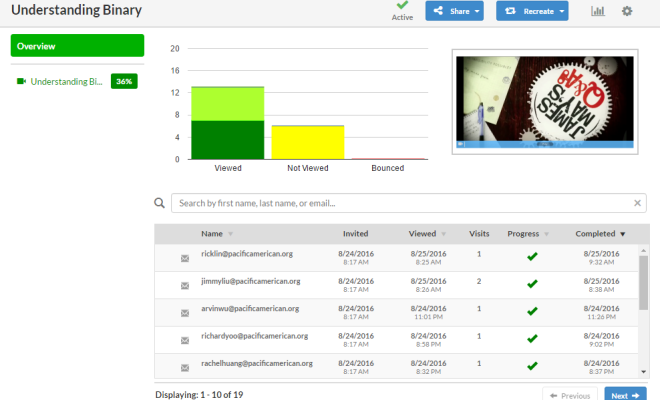New Teachers: 2 Educational Associations You Must Consider Joining

New teachers will sooner or later consider the option of joining an educational association. Educational associations not only provide support, but also continuing education for teachers. There are two main associations in America. I will discuss those—and mention several smaller ones that are also worth consideration.
1. NEA
With approximately 3 million members, headquartered in Washington DC, and having affiliates in every state and a total of more than 14,000 local affiliates, The National Education Association’s history goes back to 1857. Historically, one of the NEA’s main goals has been to nationalize the American school system. Its first meeting was held in Philadelphia, its nominated birthplace, where teachers gathered to propose curriculum and policies that could be adopted at a national level.
The NEA provides support for teachers from job placement, teaching tips to professional development opportunities. In the 1960s, school directors, officers and university professors, carried out the work of the NEA predominantly. These leaders would take the discussed proposals to their respective local communities for possible implementation. Proposals were mostly concentrated on collective bargaining for teachers’ rights protection and lobbying for educational issues.
From the end of 1970s, the NEA’s collective bargaining legislation has been its main aim.
The NEA has supported many political causes and some are listed below.
- The bills to amend the measurement of students’ abilities based solely on test scores.
- The legislation that would ensure the civil rights laws applied to faith-based education providers.
- Help in creating the school transformation capacity at both the local and state levels.
- Stronger enforcement of civil rights laws to widen the access to education.
- The legislation supporting No Child Left Behind Act.
- Endowing the teachers with funds and flexibility to meet the high standard of No Child Left Behind Act.
- Holding onto the Class Size Reduction program for higher-quality education.
- The Act as being a disappointment as test scores was basically the high-stakes testing.
- The legislation that would extend three years of time to allow every academics to meet the “highly qualified” rule.
The NEA’s goal has always been “to elevate the character and advance the interests of the profession of teaching and to promote the cause of education in the United States.” With such goals, the NEA is against competency testing of teachers. However, opposite to it, since 1987, the NEA has supported the National Board for Professional Teaching Standards (NBPTS) and also is for special programs for linguistic and ethnic students. The NEA has been against any public funding for religious and private schools.
2. AFT
With more than 1.4 million members, affiliated with the AFL-CIO (American Federation of Labor and Congress of Industrial Organizations) and having 43 state and 3,000 state affiliates, the AFT (American Federation of Teachers) is a union organization, representing classroom teachers. Officially founded in 1916 by John Dewey, a prominent educational reformer, the AFT goes hand in hand with the American labor movement. Due to the AFT’s focused coverage of the main urban areas, member size is approximately one-third of that of the NEA. Here are the following locations where the AFT currently helps teachers with bargaining: Atlanta, Boston, Chicago, Cleveland, Dallas, Detroit, Houston, Kansas City, New York City, Philadelphia, Pittsburgh, St. Louis and Washington, D. C. However, when counting the AFL-CIO members, the total number is more than 14 million.
The AFT’s main activity is to be help teachers with annual collective bargaining for a salary increase. The success rate has been high as the AFT’s approach can be said to be aggressive with the threats or actual strikes. The AFT’s beginning was not one of national policies, but the fight for a pension law for female teachers in Illinois. In 1897, the Chicago Teachers Federation was the first union in the area to be set up under the leadership of Catherine Goggin and Margaret Haley. The Chicago Teachers Federation was focused much on pension benefits and teachers’ salaries. After the successful increase in teachers’ salaries, in one year, the number of members jumped to 2,500 (Smith & Coffin, 2004). Taking the advice from famous reformer, Jane Addams, the Chicago Teachers Federation placed itself under the AFL (American Federation of Labor) by joining the Chicago Federation of Labor.
Between the years of 1966 and 1981, the AFT saw an increase of over 450,000 members as more teachers around the country accepted the ideas of collective bargaining. The AFT has supported higher minimum standards and more training for teachers. Also, as the founder, John Dewey’s famous quote goes, “education is not a preparation for life, education is life itself,” the AFT provides continuous training for teachers. The AFT’s official website is a valuable resource for teachers and other professionals in the education field.
What are the differences between the two?
The biggest difference between the NEA (National Education Association) and the AFT (American Federation of Teachers) is the historic separation — the NEA is a professional organization and the AFT is traditionally a union organization. NEA membership is offered to the individuals who are “public school teacher, faculty member, education support professional, retired educator or a student preparing to become a teacher” (NEA). AFT membership is offered to individuals who work in “Pre K-12 school system (public, private or charter), early childhood center, college or university system, healthcare facility or local, state or federal government office.” Unlike the AFT, the NEA remains unaffiliated with the labor movement, however the NEA’s involvement in politics can be said to be greater.
It is wise to consider the following questions in the context of the NEA and the AFT:
- Should teachers be joining forces to protect and improve their own working conditions, salaries and other benefits?
- When legislation is related to education, should teacher unions be actively involved in campaigning?
- Do teacher unions have the responsibility of bringing about the reform of the education system?
- Should teacher unions have control over school budgets?
- Should teacher unions use collective bargaining to control school matters such as class sizes and the curriculum?
- What is the optimal level of involvement in a teacher organization (Danielson, 2007)?
You always have other options.
For your own professional development, you can look further than the NEA and the AFT. Prominent publications like Education Week and Teacher Magazine provide a wide range of training materials for teachers. The websites of these two publications can be found at the following addresses: http://www.edweek.org/ and http://www.teachermagazine.org/. New and veteran teachers can refer to many resources such as those publications, courses provided by universities and professional associations for continuous development and refinement of teaching skills. You can also refer to the Internet for helpful and easy-to-access materials for activity ideas (Inspiring Teachers, http://www.inspiringteachers.com/) to connecting with other teachers (Education World, www.education-world.com) (Smith & Coffin, 2004).
Plus, here are some other organizations to consider.
Below are the links to few more organizations that teachers might find useful:
- The Association for Supervision and Curriculum Development (www.ascd.org)
- National Middle School Association (www.nmsa.org)
- National Association for the Education of Young (www.naeyc.org)
- National Association for Gifted Children (www.nagc.org)
- The Council for Exceptional Children (www.cec.sped.org) (Smith & Coffin, 2004).
For specific subjects, a quick Internet search will give you numerous resources provided by organizations and journal articles. Below are a few examples:
- American Alliance for Health, Physical Education, Recreation and Dance (www.aahperd.org)
- American Council on the Teaching of Foreign Languages (www.actfl.org)
- National Council for History Education (www.nche.net)
- National Council for the Social Studies (www.ncss.org)
- National Council of Teachers of English (www.ncte.org)
- National Council of Teachers of Mathematics (www.nctm.org)
- National Science Teachers Association (www.nsta.org)
- Teachers of English to Speakers of Other Languages (www.tesol.org) (Smith & Coffin, 2004).
Immersed in a learning community, you will find yourself not only teaching, but continually needing to and wanting to improve your knowledge and refine your teaching skills. All the resources mentioned in this section will provide good guidance towards the path of continuous education as a K-12 teacher.






